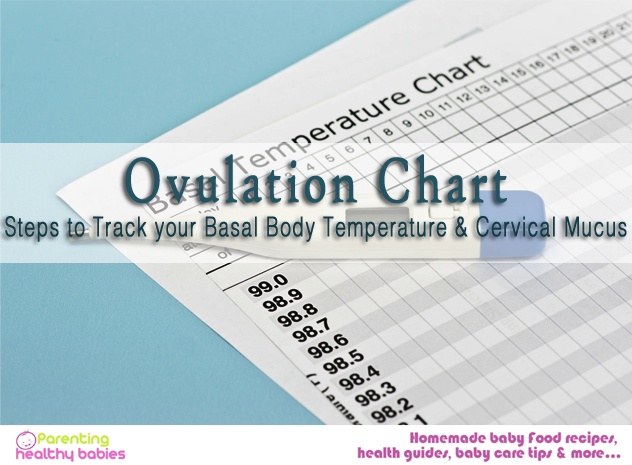Are you trying to get pregnant? It would help you a lot to have a rough estimate of when you’re going to ovulate. This will help you to tell when to have sex or be implanted with pregnancy. You can best do this by tracking your basal body temperature or monitor certain changes in your cervical mucus, if not both with an ovulation calculator.
Read More: 11 Home Remedies to Overcome Painful Ovulation
What is basal body temperature?
The lowest body temperature you record of yourself over 24 hours is your basal body temperature (BBT). This will need to be measured every day for the next few months to check for a particular pattern that will be the base of determining when you will ovulate.
For an accurate reading, a basal thermometer is required which will measure even the most minute body temperature changes.
Read More: Mittlelschmerz or Painful Ovulation: Signs and Symptoms
How to take your basal body temperature?
Take your basal body temperature first thing in the morning on an empty stomach and before you swing your legs out of bed. Use a BBT chart to record your temperature. Maintain the timing of your readings each morning because if the timing changes, your chart will be inaccurate.
You will find that before you ovulate, your range of temperature is 97.2-97.7 degrees Fahrenheit. But 24 hours after ovulation, it will increase by about 0.5-1 degree in your chart, which will remain till your next period. Once you find yourself pregnant, your temperature will remain at a high level right through your pregnancy.

Steps to chart your basal body temperature
- After you take your temperature, make an X-mark in the first column titled Day 1 of Cycle in the box where date and temperature intersect. Connect the dots with a line over a monthly period and check to see if there are any ups and downs in this period. You will be able to see a particular pattern of temperature variation which will be a reflection of your pattern of ovulation.
- Write out the day’s BBT on a letter pad and chart it at a later date. Alternatively, fill up the day’s temperature on your chart. Choose what suits you best.
- Remember to write the month and date when you began to track your cycle on your chart. Begin a new chart every month and for every menstrual cycle.
- Every day of the month that you enjoy intercourse, circle the dot representing that date at the base of the chart.
It is generally understood that women must take their BBT vaginally instead of below their tongues. However, since BBT thermometers are highly accurate, vaginal temperature reading is unnecessary.
Cervical mucus method
Another way of finding out when best to be implanted with pregnancy is through your cervix mucus. The cervical mucus method helps you tell when you’re going to ovulate by tracking any changes in your cervical mucus or vaginal discharge through your menstrual cycle.
Read More: Benefits of Cervical Cerclage You Need to Know
How to tell when you’re ovulating?
When you ovulate, your cervical mucus will no longer be scant but become thick or even watery. This is due to cells within the mucus that change and lengthen to help the sperm swim upwards and move through the cervix to reach the egg.
Read More: How to Know When You Ovulate?
Steps to chart your cervical mucus
Print out a copy of your BBT chart with all the plottings on it. Now, you’re ready to chart your cervical mucus. Here’s how:
- Wash your hands well and dry them completely. Choose any of these positions that’s comfortable to you–either sit down on the toilet, squat or remain standing.
- Insert one finger inside your vagina. If you produce too much mucus, your finger won’t have to enter too far inside.
- Remove your finger and check the consistency of the mucus. You can do this by looking at the mucus and rolling the mucus between your fingers. Try pressing your fingers together and move them apart slowly. If the mucus is wet, part your fingers for a couple of inches. See if the mucus looks like raw egg white. If yes, it means the mucus is fertile. At this point, you have still not ovulated, so the time is ideal for intercourse.
You can monitor your body’s cycle and get pregnant accordingly. As you near ovulation, your mucus will change and turn fertile. After ovulation, it will cease to be fertile. If you can find out when your mucus is most fertile, you can tell when to ovulate and increase your chances of getting pregnant.
Read More: 11 Signs and Symptoms of Ovulation
Resources:
https://www.fertilityauthority.com/your-fertility/cervical-mucus
https://www.huggies.com.au/conception/ovulation/basal-body-temperature